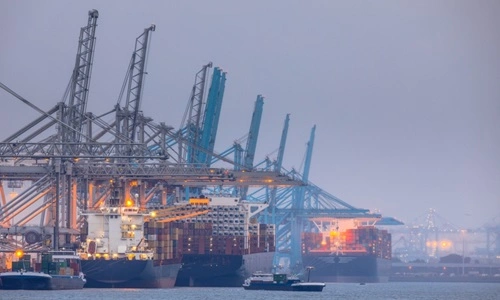Whether operating a small boat or a large commercial vessel, one of the most fundamental responsibilities of a vessel operator is to keep a proper lookout. According to U.S. Coast Guard regulations, every vessel operator must maintain a constant and vigilant watch to prevent collisions, ensure passenger safety, and navigate effectively.
Failure to maintain a proper lookout can lead to accidents, legal consequences, and even fatalities. With boating activity on the rise and new advancements in maritime technology, the importance of an attentive and proactive lookout is more critical than ever.
This article explores the reasons why vessel operators should always keep a proper lookout, supported by the latest data, expert opinions, and safety recommendations.
1. Preventing Collisions and Accidents

One of the primary reasons to maintain a proper lookout is to avoid collisions with other vessels, docks, and obstacles in the water.
The Role of Situational Awareness
In 2023, the U.S. Coast Guard (USCG) reported that collisions with other vessels and fixed objects accounted for nearly 40% of all boating accidents. Many of these incidents were linked to distracted or inattentive vessel operators.
A proper lookout involves:
- Scanning the surroundings constantly for nearby boats, swimmers, or floating debris
- Using mirrors, cameras, and radar systems to identify hazards, especially in low-visibility conditions
- Listening for signals or warnings from other vessels
By maintaining awareness, vessel operators can react quickly to prevent accidents before they happen.
2. Complying with Legal Requirements
Keeping a proper lookout is not just a best practice—it is a legal obligation under maritime law.
U.S. Coast Guard and International Maritime Rules
The International Regulations for Preventing Collisions at Sea (COLREGs) and U.S. Inland Navigation Rules require that vessel operators:
✅ Always maintain a proper lookout using sight and hearing
✅ Use all available means—including binoculars, radar, and GPS systems—to detect potential dangers
✅ Remain alert in crowded waterways, foggy conditions, or night travel
Failing to comply with these regulations can lead to:
⚠️ Fines and penalties
⚠️ Suspension of boating licenses
⚠️ Liability for damages in case of an accident
A vessel operator who fails to maintain a lookout may be considered at fault in a collision, even if they were not speeding or violating other rules.
3. Ensuring Passenger and Crew Safety
A distracted or inattentive vessel operator puts everyone on board at risk.
Common Risks Without a Proper Lookout
Falling overboard incidents – An operator who is not paying attention may not notice if a passenger falls into the water.
Capsizing risks – Failing to recognize changing weather conditions or large waves can lead to dangerous situations.
Man-overboard rescues – A proper lookout ensures immediate action if someone falls into the water, improving survival chances.
A 2024 National Transportation Safety Board (NTSB) report found that over 60% of boating fatalities could have been prevented if operators had noticed dangers sooner and acted quickly.
4. Avoiding Hazards and Navigational Dangers
Lakes, rivers, and oceans are full of hidden dangers that can damage a vessel or cause accidents.
Common Boating Hazards
⚓ Submerged objects – Logs, rocks, and wreckage can severely damage a boat’s hull.
Changing weather conditions – Sudden fog, storms, or high winds can create dangerous navigation conditions.
Wildlife and marine life – Collisions with marine animals, such as whales, manatees, or sea turtles, can harm both the animals and the vessel.
Vessel operators who keep a proper lookout can spot and avoid these hazards before it’s too late.
5. Preventing Boating Under the Influence (BUI) Incidents
Operating a vessel while under the influence of alcohol or drugs significantly reduces a person’s ability to maintain a proper lookout.
The Dangers of Boating Under the Influence
A 2023 U.S. Coast Guard report found that alcohol is the leading contributing factor in 23% of all fatal boating accidents.
Impaired vision, delayed reaction times, and reduced awareness increase the chances of missing hazards or oncoming vessels.
Maintaining a proper lookout is impossible if the operator is impaired. This is why strict BUI laws are in place, with penalties including:
- Heavy fines
- Suspension or revocation of boating privileges
- Criminal charges if an accident results in injury or death
6. Enhancing Overall Boating Experience
Beyond safety, a proper lookout improves the boating experience for both the operator and passengers.
Benefits of Staying Alert
Enjoying scenic views – Boaters can appreciate wildlife, coastlines, and open water more when they are paying attention.
Better navigation – Staying alert helps operators follow safe routes, avoid crowded areas, and find the best docking locations.
️ Stress-free boating – A proper lookout ensures a smooth, enjoyable ride without unexpected dangers.
Frequently Asked Questions (FAQs)
1. What does “keeping a proper lookout” mean in boating?
It means the vessel operator is actively watching, listening, and using navigational tools to detect and avoid hazards.
2. What happens if a boat operator doesn’t keep a proper lookout?
Failing to maintain a lookout can lead to collisions, legal penalties, injuries, or fatalities. It is also a violation of U.S. Coast Guard regulations.
3. Do all boats need to keep a proper lookout?
Yes. Whether you operate a kayak, sailboat, fishing boat, or commercial vessel, keeping a proper lookout is essential for safety.
4. Can using GPS and radar replace a visual lookout?
No. Electronic navigation tools should complement, not replace, a human lookout. Relying only on GPS or radar can result in missed hazards.
5. What is the best way to improve lookout skills as a boat operator?
- Take a boating safety course
- Use binoculars, mirrors, and radar
- Assign a dedicated lookout person in busy waters
- Stay sober and alert at all times
Conclusion
Keeping a proper lookout is one of the most important responsibilities of a vessel operator. Whether preventing collisions, ensuring passenger safety, or navigating hazards, staying alert can make the difference between a smooth sailing experience and a catastrophic accident.
With modern boating technology and increased water traffic, operators must remain vigilant, responsible, and proactive. By following legal requirements and prioritizing situational awareness, vessel operators can protect lives, avoid accidents, and enjoy stress-free boating.


